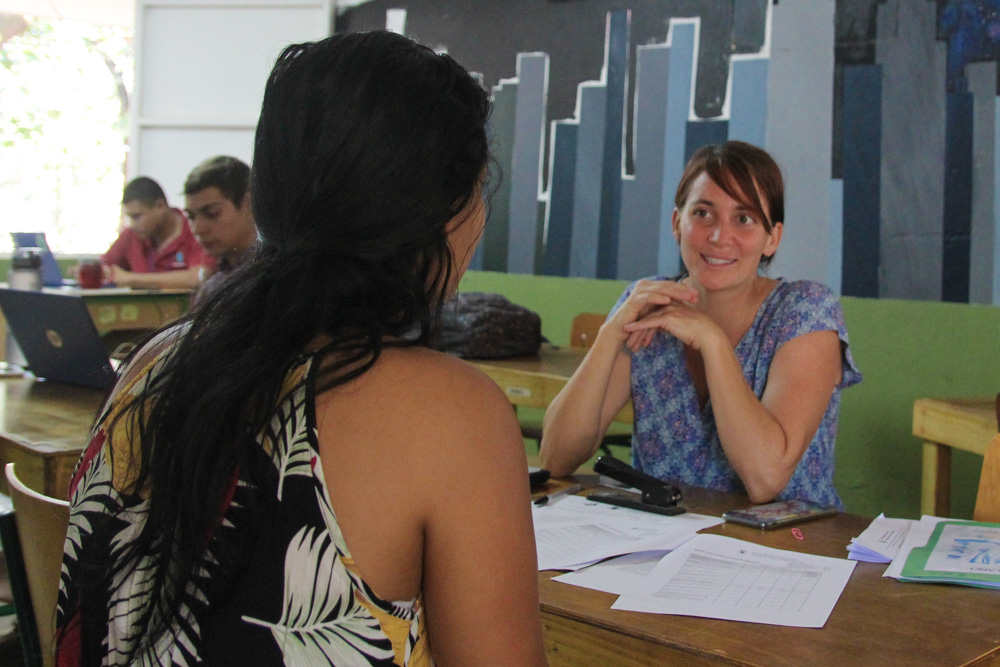
by Katie Chiaverini | May 4, 2020

Conferences offer the opportunity for families and teachers to discuss student progress, share the report card, discuss student strengths and areas of growth and to allow time for parents to ask important questions and share with teachers valuable information regarding their child. During the COVID-19 Pandemic from March 17th until now, all Futuro Verde students and teachers shifted learning to an online delivery. We have continued educating our students with our online program that fully complies with curricular and grade-level requirements. Futuro Verde also created a modified rubric for evaluation purposes that fairly accounts for student learning while also taking into consideration the challenges inherent to the global and local crisis. Following our online education model, we will move ahead with our trimester I parent-teacher conference plans, but in a modified online format.
As a staff and school, we have tried several different formats for online collaboration among teachers, administration and students, including the two we have found most popular and user friendly, Zoom and Google Hangouts. At this point, teachers and families can decide which method will work best whether it be Zoom, Google Hangouts, or phone calls. If anything changes, we will provide updated information but at this time you can get a head start by downloading Zoom on your phone, tablet, or computer. Follow this link to sign up for this free application and be ready to speak with your child’s teacher on May 19th or 20th. More information will be sent out soon regarding the scheduling of conferences, how to access your child’s report card and any additional technical support that you might need assistance with to successfully connect with your child’s teacher.
We remind you that one way to keep up on your child’s work and progress is through their Google Classroom account. You can receive regular messages through the platform but we also recommend sitting down with your child to look over their to-do lists, feedback on assignments and grades. In the primary years, teachers will continue communicating with families on a regular basis through Google Classroom, Google Hangouts, Seesaw, emails or phone calls. We know that not just one communication method works for all so we are trying to accommodate different needs.
At this time, we are noticing that students are being pushed to sharpen their “soft skills” which include things like communication, time management, and organization. Our modified online rubric accentuates these soft skills by giving weight to students who show effort, creativity and resilience as well as timeliness and communication, while continuing to evaluate content mastery. We hope that we can find a “silver lining” in the crisis and focus on developing these other areas which we know build character and more balanced human beings. As teachers and administrative staff, we are definitely being given the opportunity to develop new skills and strengthen those we already possess. Learning is definitely a life-long process and we are on that journey together right now!
We look forward to taking the time to celebrate your child’s growth during such a difficult time and also to work together as a team to identify ways in which we can help them be even more successful. As the age old saying goes….it takes a village to raise a child… and in this crisis this saying rings more true than ever.
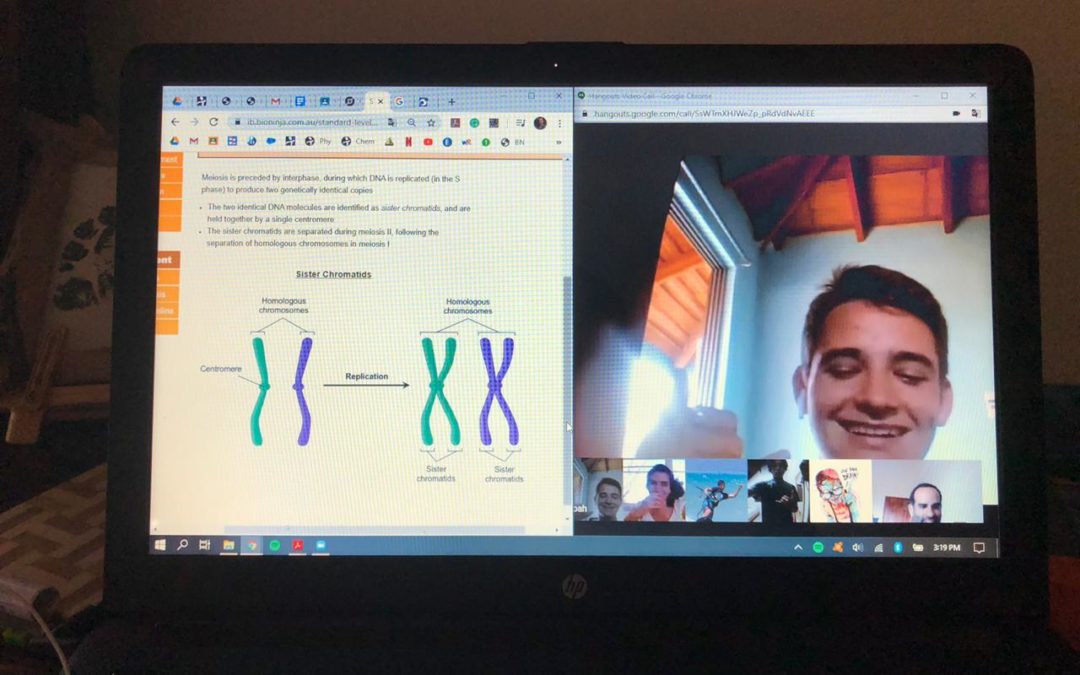
by Khalida Lockheed | May 3, 2020
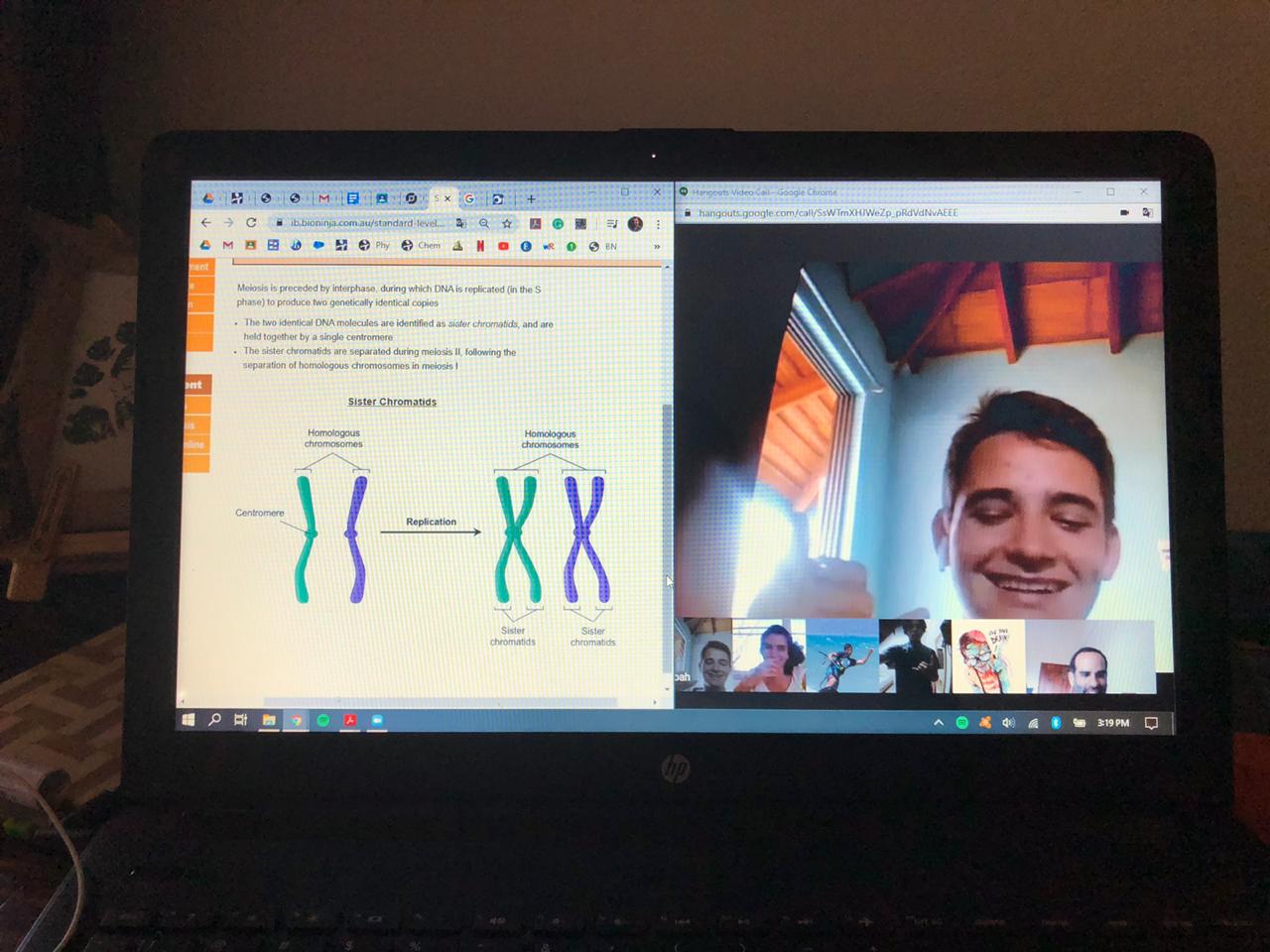
An integral part of an IB education, which our students are well aware of, is the IB’s Profile of a Learner. All students can name at least a few, having seen them on the coveted Valores and participated in fun Peace Practice activities illustrating them. As a reminder to our larger community, they are: risk takers, inquirers, knowledgable, thinkers, good communicators, principled, open minded, caring, balanced, and reflective. But, did you know that another very important aspect to an IB education is the Approaches to Teaching and Learning, or ATLs? These are the skills embedded in an IB education which truly prepares students for further studies at the university level:

Rarely have these skills been so vigorously tested as in this current online learning context! Learning online, oftentimes independently, requires students to put self-management into rigorous practice. In addition, students have needed to learn different modes and skills of communication. Teachers, across the board, have been truly impressed with the work students have produced, in spite of these new challenges. We have all been delighted to see these 21st century skills on display by students and have been challenged as teachers to find new ways to deliver our lessons online which inspire these approaches to learning.
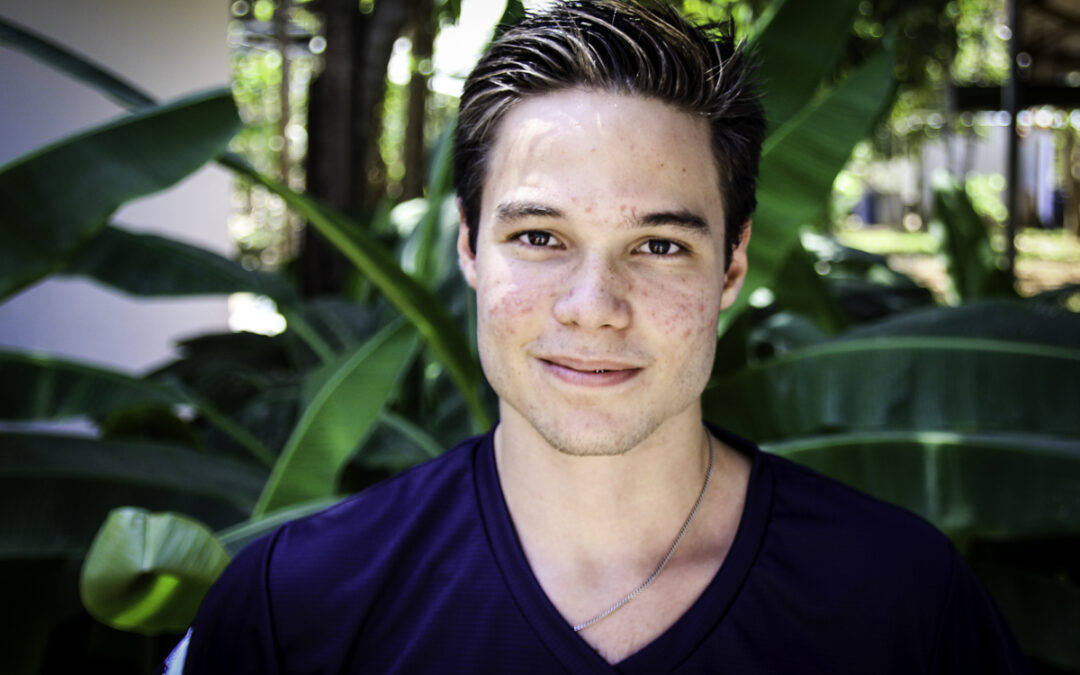
by Tristan Gamboa | May 2, 2020
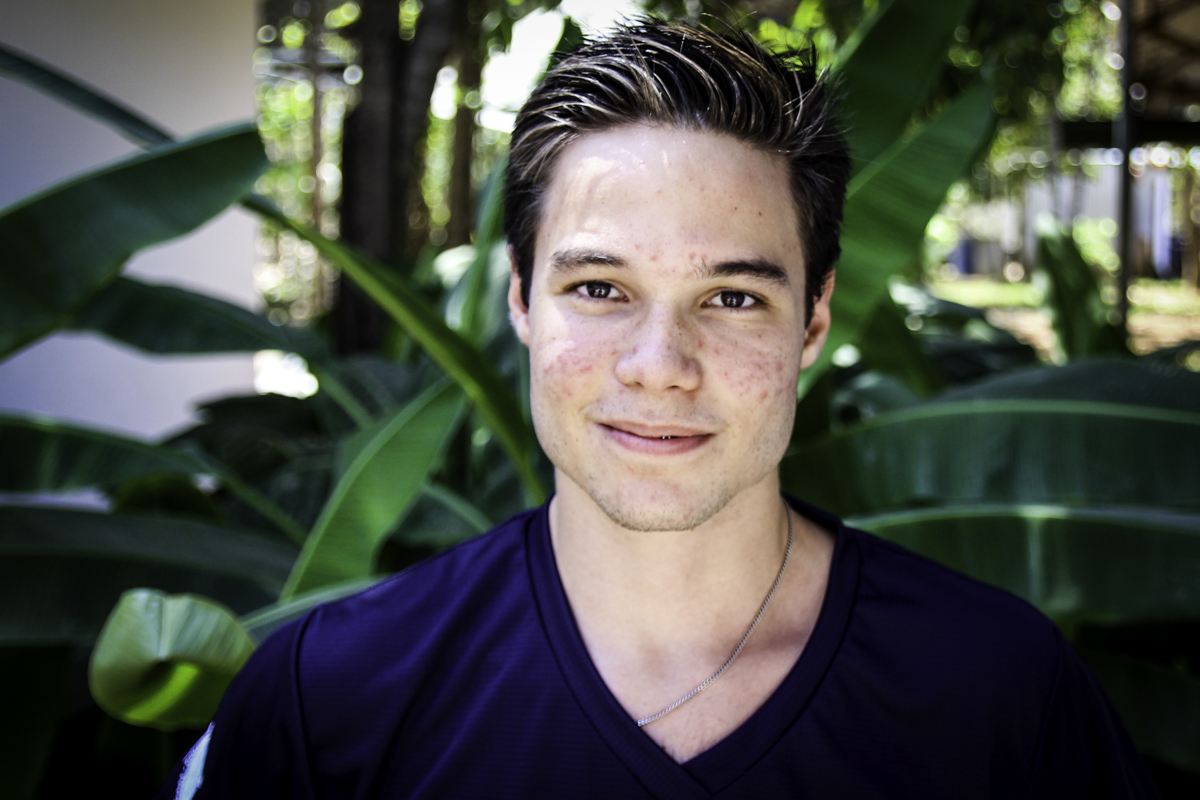
The CAS program requires students to experience different stages of learning through their projects or experiences. These stages are research, preparation, action, reflection and demonstration. In this article, 12th grader Tristan Gamboa Porier tells about what he learned and accomplished through all the stages.
CAS requires us as students to be explicit about the learning outcomes achieved during our experiences or projects. The learning outcomes I developed throughout this project are:
- Identify own strengths and develop areas of growth
- Demonstrate that challenges have been undertaken, developing new skills in the process
- Demonstrate how to initiate and plan a CAS experience
- Show commitment to, and perseverance, in CAS experiences
The way these learning outcomes were achieved and developed throughout the project are shown in the reflection underneath.
My Little Journey as a Club Teacher
Hi, my name is Tristan Gamboa. I am a twelfth-grade student and this is my reflection for my 2019 CAS project. What was my project? Well, my project was really simple and had really simple goals. You see I made a connection, I had two things in mind “What is something I like to do?” and “What is something I’ve never done before?” so then after some reflection I concluded “I like parkour, and I’ve never been a teacher of any kind before” And that is how my parkour club was born.
So then my project was born out of a combination of a strength and an area of personal growth. I used to be pretty good at the sport but teaching is something that had scared me and I personally would have never imagined myself doing it, so it for sure was a risk for me to set myself up to becoming a teacher. But taking this risk finally paid off, and not because the club went great (because on some occasions it didn’t) but because by the end of the club my perspective towards teaching completely changed. So I will take you on a short journey so that you can have an idea of how this process of “I will never be a teacher” to “I want to continue this club after I’m done with the project”.
Monday 3 of September of 2019 was the first class I gave and I decided for this class to be an introduction to the sport and an introduction to how I had planned for the club to carry out as much for me to get to know them. And well, I got to know them. The first thing I realized was that the kids had different attitudes towards this class, some of them were there because they wanted to be there and some seemed to be there because their parents told them to. And well this was something I didn’t expect but ended up being my biggest problem as a teacher.
As the classes kept going my first realization became a consistent issue (the kids who were there only because they had to). But along the way, I realized positive things too. Such as the fact that the homeroom teacher of my most enthusiastic kids told me that they looked forward to my club every Monday and every time I asked them for feedback at the end of the class to know how well I was doing as a teacher and they would always say that they enjoyed the class which I was always glad to hear. One particular day which really moved me was a day I was in a bad mood, and the kids asked me “why aren’t you smiling like always” and then as the class continued they kept trying to find out what was wrong and were doing their best to cheer me up which ultimately did work and left that class with a big smile on my face, all because of the kids.
With the progress of the class both of us, the kids and I, were learning a lot. They were really learning the tricks and moves that I was teaching them and I was learning how to keep their attention and how to make the activities in which they learned more fun for them. I was suddenly not working alone but in a team, kids themselves were helping their partners and helping me with the class which was teamwork that I never saw coming but I was glad to take advantage of.
A particular thing as a teacher was finding the balance between a fun class and a focused class. Every class I would work really hard to achieve that balance I would usually achieve it to a certain extent until one day when the kids were completely out of control and I thought to myself “How did my favorite teachers deal with my class when we would get out of control?”. So then that is exactly what I did, for the first time I spoke to the kids with complete seriousness and with clear intentions with my words and told them that those who were not being obedient, would no longer come to the class since they weren’t allowing their peers to learn what they came to learn. And with that, I regained their attention and for the rest of the class, they remained completely obedient but gladly not in a bad mood but just happy to be there.
The two examples I provided really summarise the ups and downs of my journey as a club teacher. In the beginning, I was afraid I could be a bad teacher and by the end, I realized that I really enjoyed teaching. Although the kids were very energetic and could become uncontrollable I had gained their respect and they had gained my love. And just like that, I had gained much more from that experience than what they could have gotten. Yes they learned a couple of tricks and one of them really fell in love with the sport which I’m proud of but I got to experience the frustration and the joy of being a teacher.
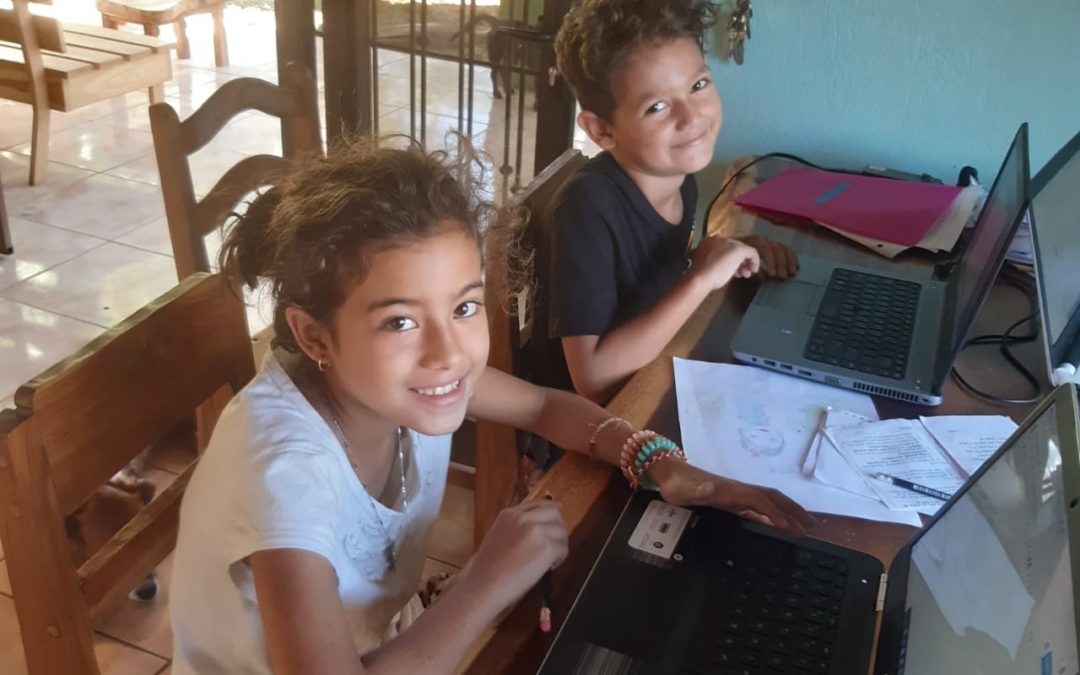
by Lural Ramirez | Mar 31, 2020
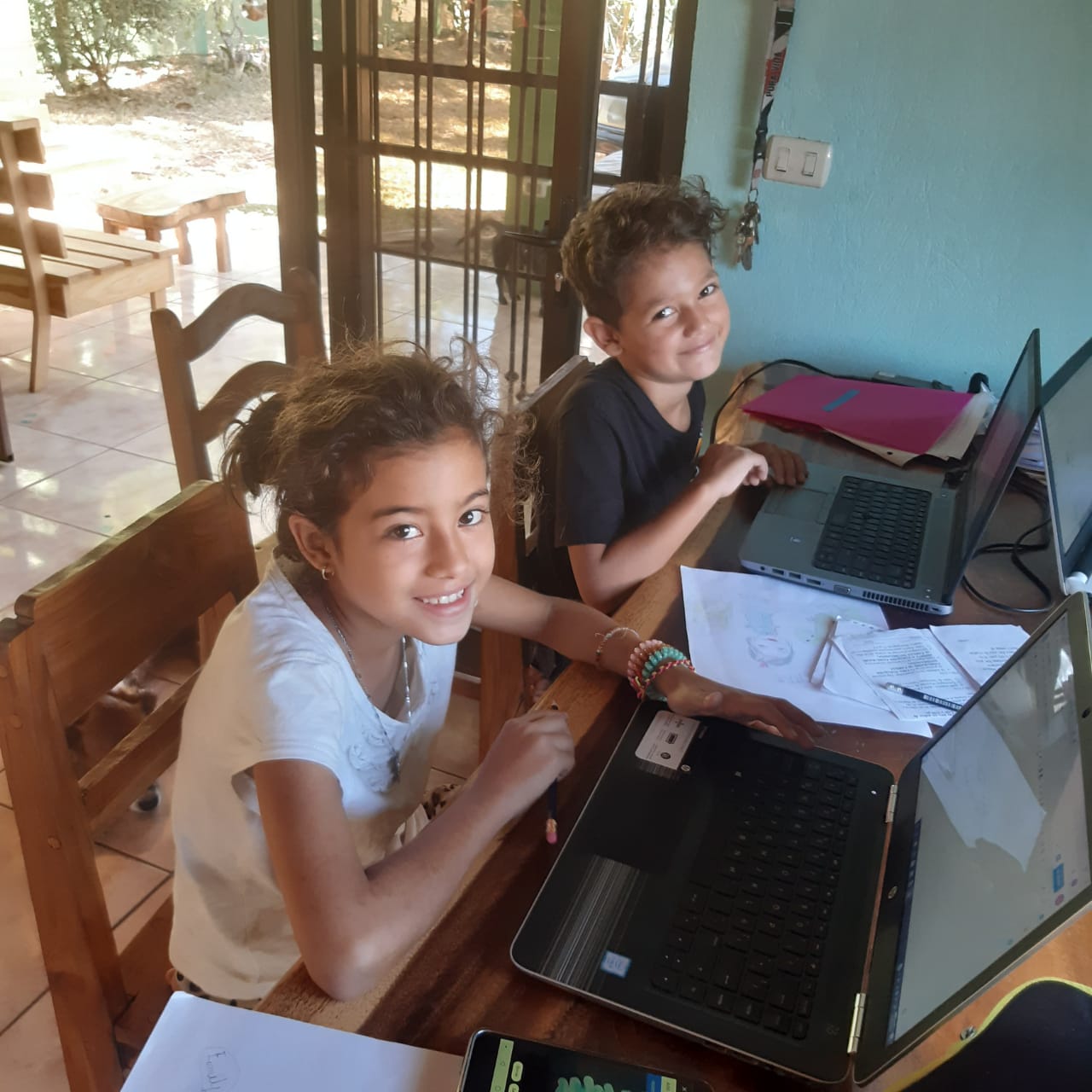
Futuro Verde has been pleased with the roll-out of our online learning program in response to the novel coronavirus, COVID-19. Our teachers have taken on the new challenge with enthusiasm and love- eager to continue to support students and provide stability and consistency in a time of such global uncertainty. But it is our families and our students who have left us absolutely blown away by their adaptability, support and commitment to their children’s learning! Together we truly are stronger and we will get through this difficult time and back to regular school operations as soon as is possible!
FAQs regarding Futuro Verde Online Learning:
My child is new to English or Spanish (or both) or has a learning support need. How is Futuro Verde addressing those needs in online programming?
All Futuro Verde teachers are with us and online- including our language support specialist and our special education teacher. Both specialists have created innovative and helpful structures to support student in their classes, to provide individual support and to continue to help teachers as they work to differentiate learning online and make it accessible to students of all abilities.If your child needs further support please contact our specialists directly:
Anika Hodel, Language Specialist: anika@futuro-verde.org
Alannah Anglin, Special Education Teacher: alannah@futuro-verde.org
I am worried about my child’s well-being during this difficult time. Does the school still offer psychological support and counseling during online programming?
Absolutely! Times like these are moments when we all need emotional support and our school psychologist, Massiel Arroyo, is here to help our students, families and staff!
Supports include:
- Mindfulness classes with intentional emotional supports for ALL students
- A Futuro Verde Facebook group especially for families needing emotional support. Parenting, supporting learning at home and managing stress related to the impact of this pandemic on us as individuals, as a family and in our work or businesses is so very important at this time and Massiel is here to support parents too!
- Personal contact coordinated by Massiel and done with the support of our administrative and leadership team to check-in on families regularly and make sure our community stays well as a group and as individuals and that everyone receives the support they need.
I appreciate Futuro Verde’s efforts to implement online learning, but we miss regular school days. When will school start again?
We will get back to regular school days as soon as the public health emergency has passed and the Costa Rican government gives us the green light to go back to normal life! We can’t wait for this to happen and look forward to seeing our students very soon!
Does Futuro Verde have a plan to sustain online learning over time if the pandemic and social distancing efforts must continue beyond the original return date of April 13th?
Absolutely! Our COVID-19 protocol includes scaffolded implementation over time and teachers are prepared to deal with attendance, assessment and long-term scheduling of online learning, if needed. But, we are all hoping for a quick return to school as soon as safety permits us to be back together again! For more details on our policies for attendance, assessment and long-term scheduling, please review our website.
How will student grading be affected during online learning? Will my child still be able to graduate and get credit for the part of the school year they spend online?
Yes, your child will continue to receive instruction, be assessed by teachers and receive due credit for their learning and growth and development! That is the biggest benefit of keeping your child in a temporary online learning program during a global emergency like the one we are currently living. Even when the world feels turned upside down, your child will continue to progress in their studies and keep their options for the future wide open! Given the challenges of online learning, Futuro Verde has developed an online grading policy that generously takes into account the challenges online learning can present and is ensured to appropriately support our students for success!
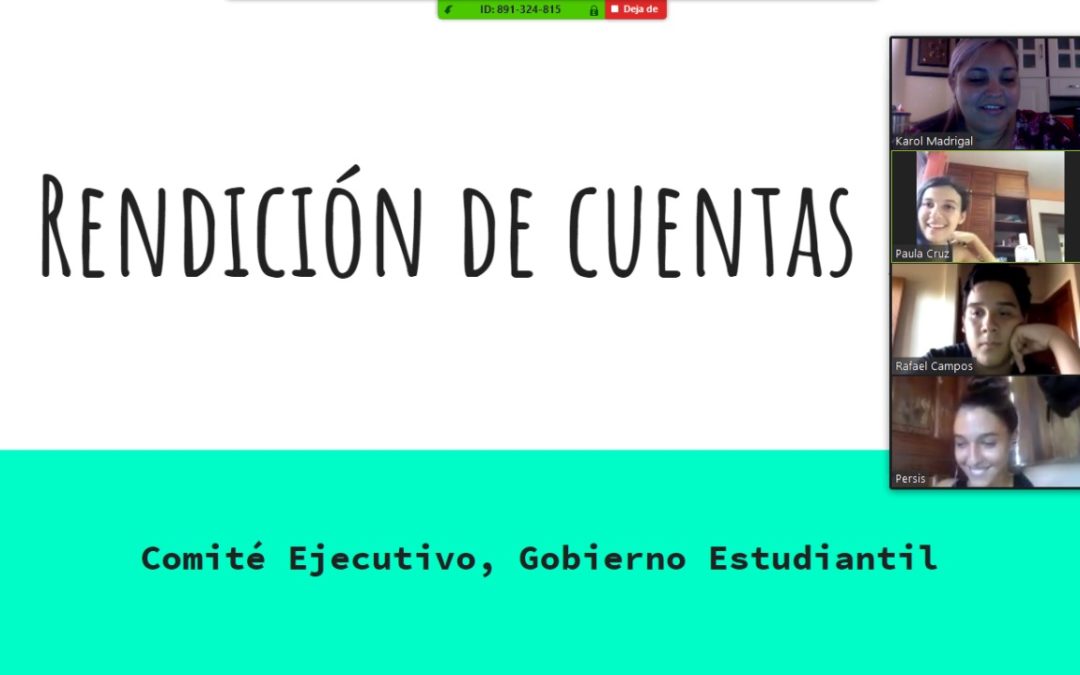
by Karol Madrigal | Mar 30, 2020
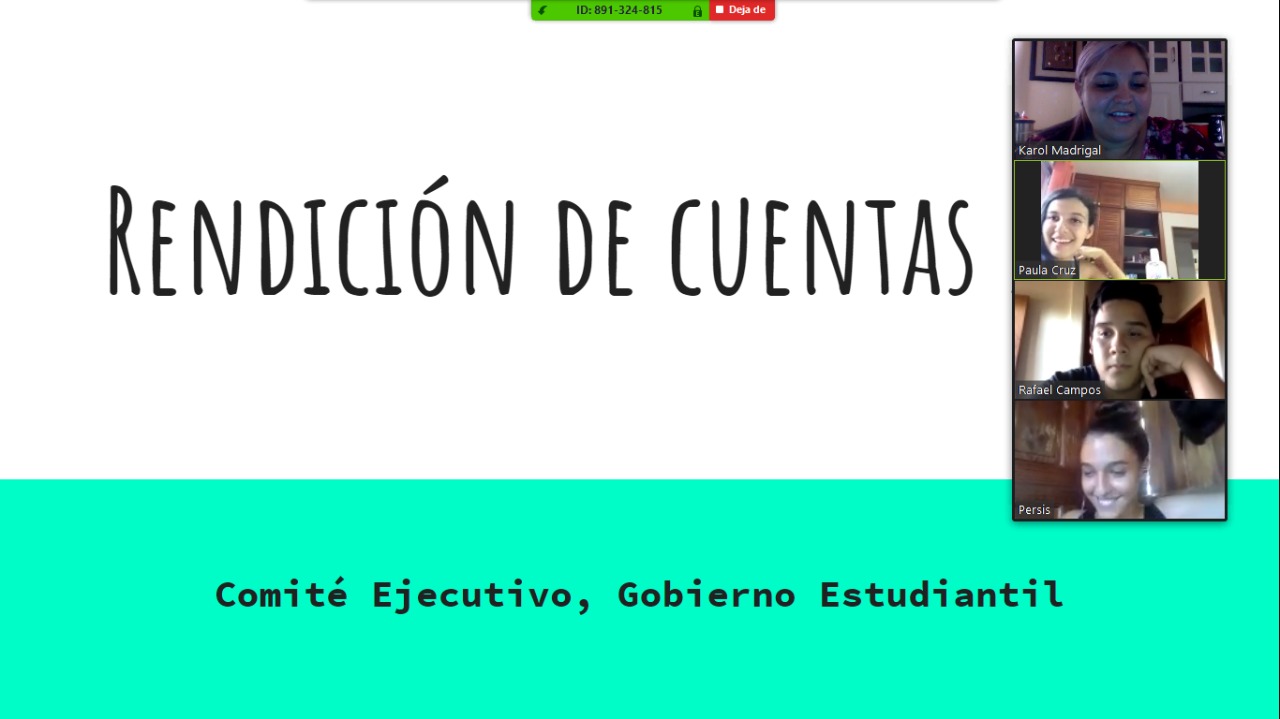
In the face of a crisis like the one we are currently experiencing worldwide, it is of utmost importance to our citizens that the national institutions of leadership take the necessary actions to overcome the emergency. A timely government response can make all the difference, not only in the real impact of the crisis, but also in the responsible attitude of the population.
In the case of Costa Rica, the government’s decisions were made quickly. Even as we go through this experience, in a way, this response has strengthened the credibility of state institutions for the people of Costa Rica. Examples of these government-driven operations range from setting up a specialized health care center for patients with the virus, to closing the borders, to producing and distributing antiseptic solution, and prohibiting vehicle traffic at night. All of these measures have contributed to the public’s perception of a kind of shield, which can only be achieved through good leadership.
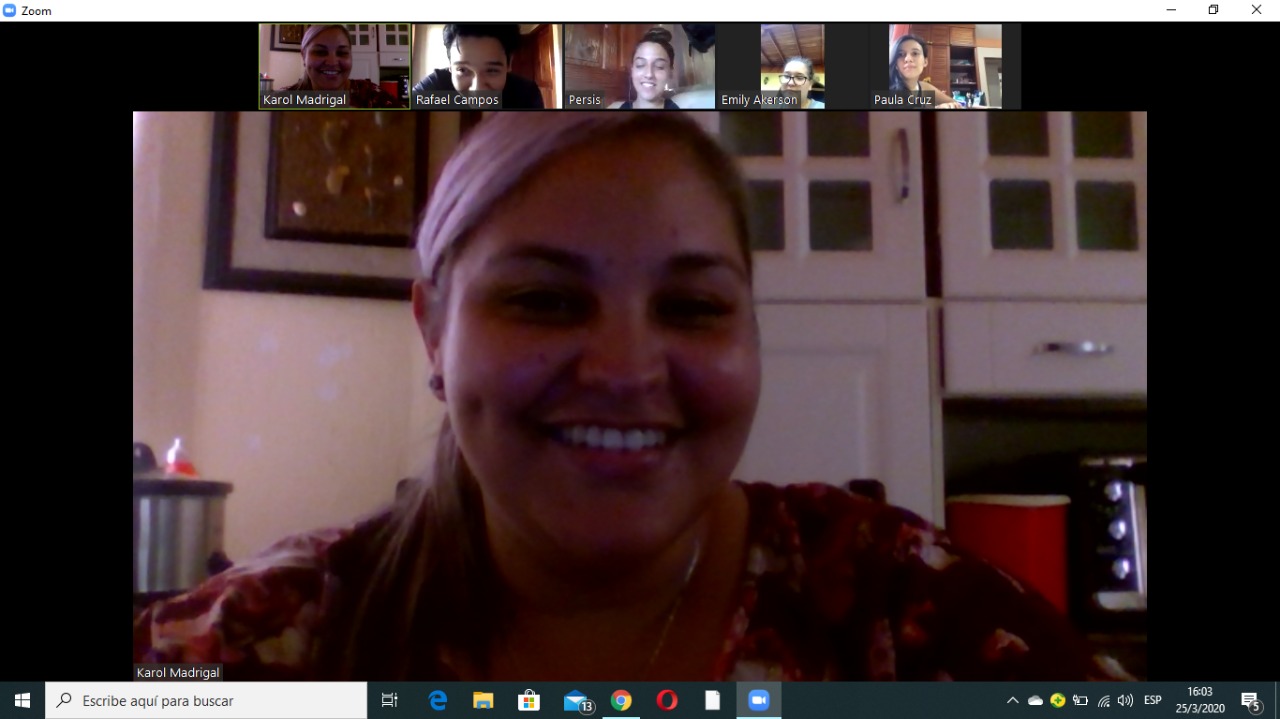
However, the concern and desire to overcome the current situation is not only a concern for the national authorities. On a more local level, the student government of Futuro Verde is aware of how this difficult context is developing and, due to its commitment to the student community, continues to meet in order to discuss ways to provide support to the students when they return to the institution. Additionally, they seek to ensure that a hygiene protocol is maintained to help protect, as much as possible, the health and general well-being of their fellow students.
What other action could more accurately reflect the way that our school prepares students for citizenship, than the genuine concern that our students are showing for their peers during a difficult time like this? Great work, Futuro Verde student government!
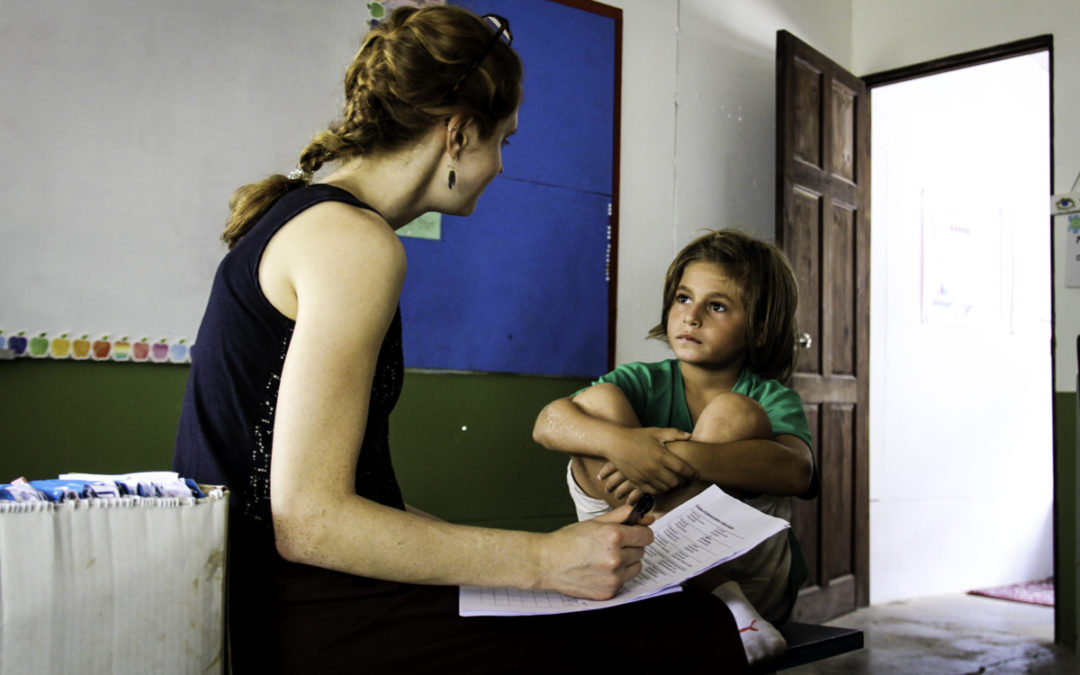
by Angie Briceño | Mar 29, 2020
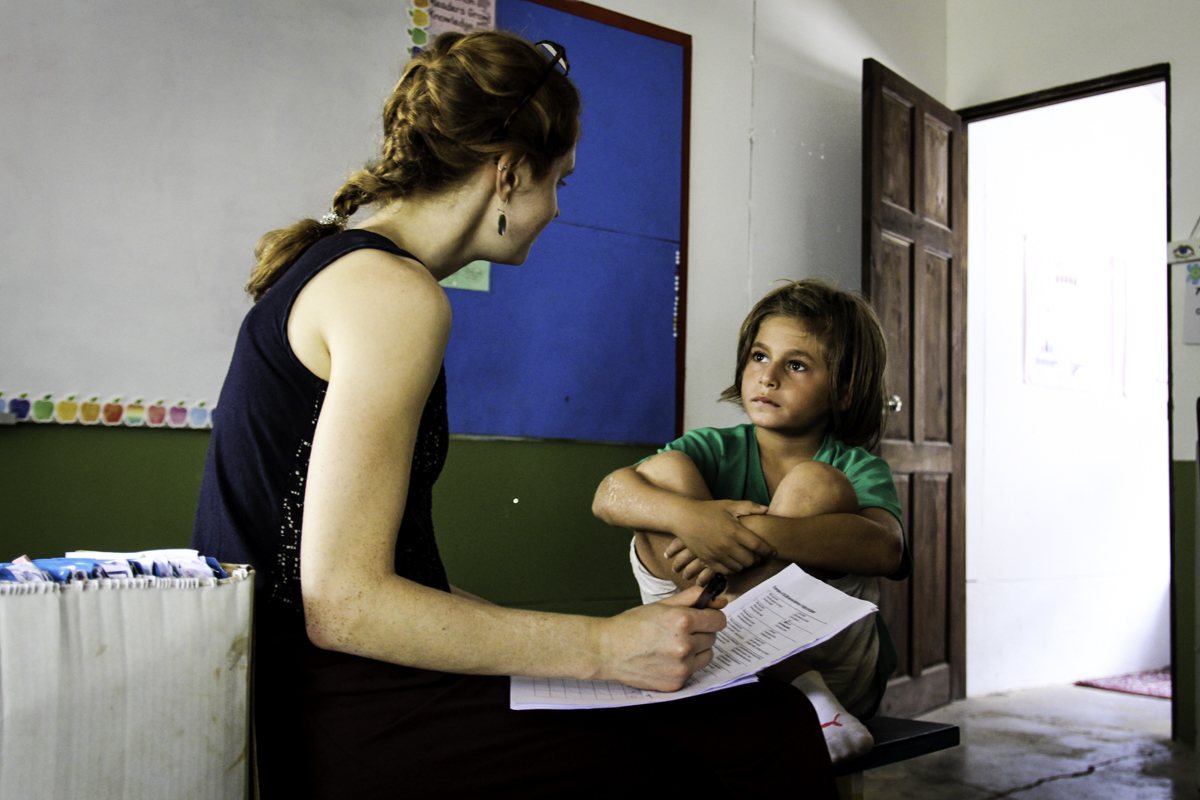
Futuro Verde has an amazing and unique bilingual program. As the language specialist at our school, I get to work with students in all stages of development of both Spanish and English, from pre-K to 12th grade. In addition to receiving instruction in both languages throughout the day, language development has several layers here at Futuro Verde. The base layer that all students receive is a course in which they study multilingual and multicultural themes. This course, called Comparative Language Study at the elementary level and World Languages for our middle-schoolers, also helps students develop important language-learning strategies such as identifying cognates (words that sound or look the same in two or more languages), or using prefixes to infer meaning. The second layer of our language development program involves supporting specific groups of students who could benefit from extra instruction in either Spanish or English.
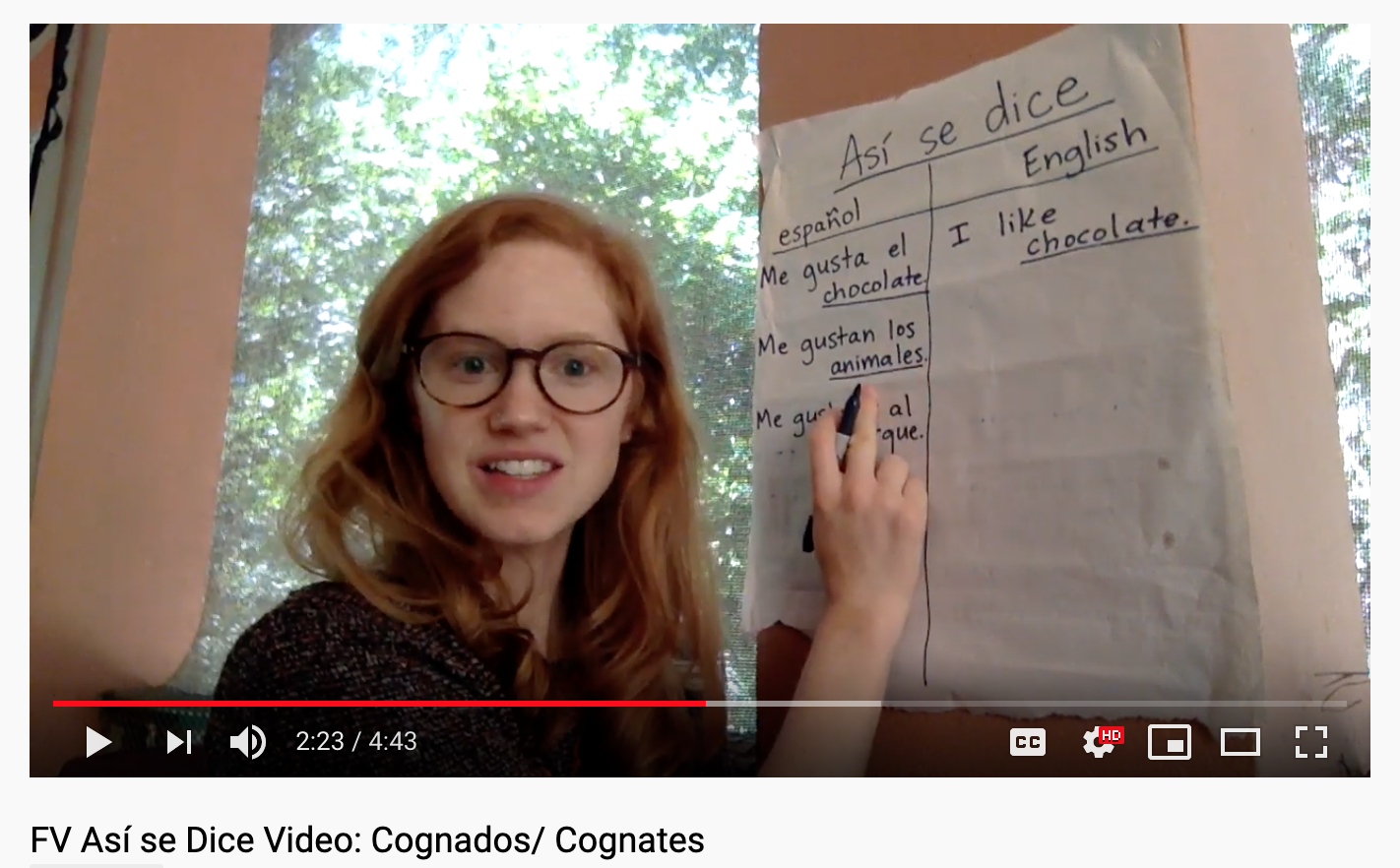
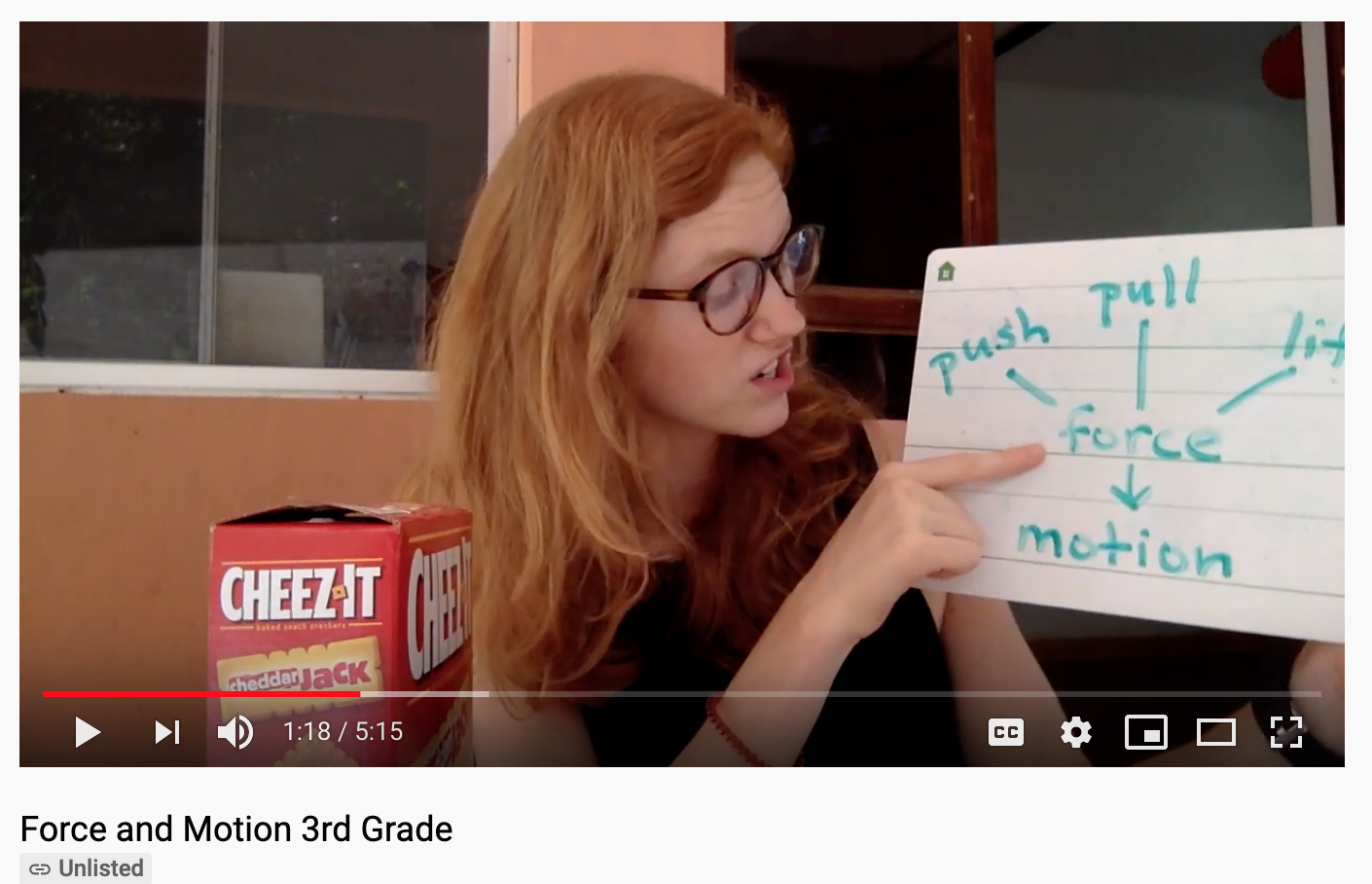
So what do both components of our bilingual program look like during online learning?
Delivering language support virtually can be a challenge, but we are finding ways to help language learners at all levels! Our Comparative Language Study course continues with online mini-lessons that I record myself teaching (for the younger grades) and assign independent work for (in the case of upper elementary). I have also been working with CREW teachers and other specialist teachers to have instructions for all assignments translated so that students and families understand how to complete each task. Additionally, we have provided video supports and modified assignments as added help for certain grade levels and assignments, not only to explain instructions more thoroughly or to guide students in completing certain tasks, but also to adapt the assignments to the needs of language learners. Videos are key here, so that we can convey meaning and content through gestures, images, objects, etc.
Parents, please feel free to reach out if your child is having difficulty understanding their assignments at anika@futuro-verde.org.
Online Special Education Support
by Alannah Anglin
Futuro Verde is lucky to have a multicultural and multilingual student population. The Support Team focuses on serving the population in a multidisciplinary manner, guiding and supporting students from preschool through twelfth grade through three different but related approaches: social, emotional and academic. Since our learning has taken a temporary turn towards virtual learning, the team has taken on the task of continuing to support students, working together with both teachers and parents. We have taken the following initiatives:
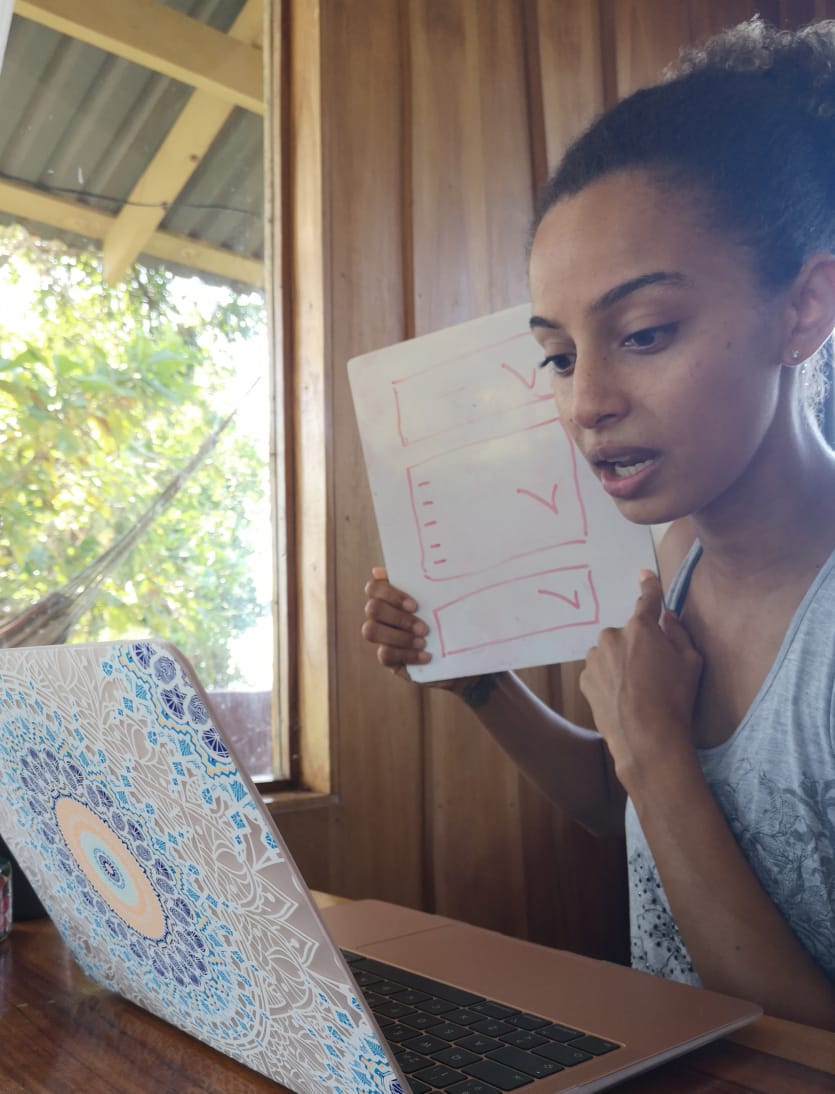
Create set schedules for online learning, seeking to bring balance, well-being, family cohesion and academic structure to homes.
Proposed Online Learning Schedule for PreK – 2nd grade
Proposed Online Learning Schedule for 3rd – 6th grade
Create virtual support ¨chats¨ in Seesaw or Hangouts, where we seek to maintain immediate communication with students and parents or guardians who wish to do so; providing guidance and answering any questions about the assigned activities.
Keep in touch with parents about their children’s progress, making sure to provide the support required by the students to facilitate the understanding and performance of the activities.
We have continued to give the Writing and Reading Workshops, taking into account the needs and objectives of each individual student.

















